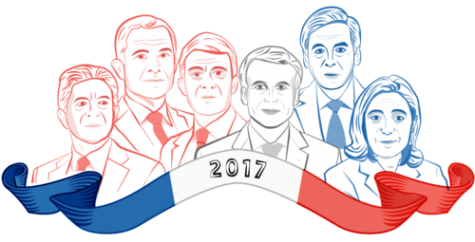French Presidential Elections 2017
May 23, 2017
On May 7, France’s runoff presidential election unveiled the country’s next political leader. Emmanuel Macron, a former economy minister and pro-business investment banker, won the French presidency with a decisive margin over far-right National Front candidate Marine Le Pen.
Macron’s clear victory–he won 66% of the popular vote to Le Pen’s 34%–is deeply significant in the context of a changing, 21st-century European country. The soon-to-be French president ran on a platform strongly supportive of free trade, international relations, and the European Union, garnering a valuable endorsement from German Chancellor Angela Merkel. Macron’s career in politics began a mere three years ago, and he has never held elected office, but perhaps even more remarkably, the 39-year-old is France’s youngest head of state since Napoleon. The next five years, over which Macron will serve his first term, will be an opportunity to ensure that France “never [has] a reason to vote for extremism again,” Macron promised to cr owds of supporters during a public appearance at the Louvre. As the successor of France’s most unpopular president ever, Macron will enter the presidency with high expectations from both his supporters and his adversaries.
owds of supporters during a public appearance at the Louvre. As the successor of France’s most unpopular president ever, Macron will enter the presidency with high expectations from both his supporters and his adversaries.
The political visions that Macron champions sharply contrasts those of his opponent, who, throughout her presidential campaign, continuously emphasized an anti-immigration stance, as well as her plans to curb globalization and distance the country from the European Union. In December, Le Pen voiced her hardline stance not only on undocumented immigrants but also their children, ominously proclaiming, “If you come to our country, don’t expect to be taken care of, to be looked after, that your children will be educated without charge… playtime is over.” Additionally, Le Pen appealed primarily to French working-class citizens, whose nationalism she echoed in her public statements. Political scientists such as James Shields, professor of French politics at Aston University, drew similarities between Le Pen’s campaign tactics and those used by the President of the United States in 2016, postulating that “she’s managing to get these approval ratings by doing a Trump.”
The French elections came at a time when world relations are increasingly tense, and the weight of the office Macron assumed on May 14 was reflected in the polarity of both candidates. As a young and inexperienced politician stands to succeed a historically unpopular president, the future of France hangs in the balance.
